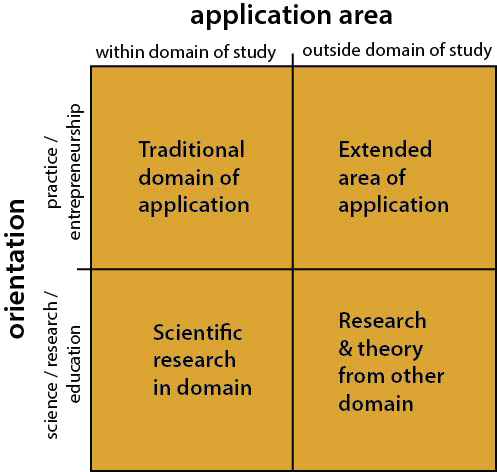Programme Overview
Structure
The HPM is open for a limited number of students, and has the following structure:
- Enrolment in either 'Critical Reflection on Technology (CRoT)' (UD2010) or 'Business Leadership for Engineers' (UD2012) is required for all TU Delft HPM students across faculties (5 ECTS)
- Participation in / organisation of TU-wide events, like symposia, exhibitions, debates with industrial representatives
- Your own ‘Master Honours Project (MHP)’ (ID6101HPM) at the Faculty of Industrial Design Engineering (16 ECTS)
The MHP is on a topic that is of your personal interest, which is not addressed (enough) in your master curriculum and is something that you would like to explore. The project should be challenging with at the outset unclear goals and deliverables, and in execution it should allow you to show that you are capable of planning, organising and executing a research project independently. More information on the project requirements and study goals of the MHP can be found in the study guide [insert link].
To propose your MHP, a navigator is developed to support HP-students and staff in their dialogue concerning the development of individual honours projects. The HP-navigator is a simple 2x2 matrix with two dimensions:
- Orientation dimension: practice/entrepreneurial or science/research
- Application area: within domain of study or outside domain of study
The HP-navigator should enable the definition of your HP project, and allows you to realise your vision or reach your goal(s).

Example of using the navigator
If you would like to apply ‘design thinking’ as an attitude to a specific area outside the domain of industrial design, e.g. crime prevention, you might consider to start with some research within the domain of design by reading appropriate literature & interview design practitioners. Then, you could focus on literature in the area of crime prevention. The integration of those two strands of research could result in a conceptual scheme labelled: Designing Out Crime. You could then end your studies with a graduation project that applies this scheme in the field of crime prevention.
This example illustrates a movement across the navigator that starts, in this particular case, in the lower left quadrant, then continues to the lower right and ends in the upper right quadrant. The navigator also supports the discussions with your coach around your individual programme regardless which corner of the matrix you are aiming at.
Enrolment
As a Master student, you can enrol for the HPM that starts in the second semester of your IPD, DfI or SPD study. You need to apply for the HPM in the semester previous to the start, thus in your first master semester. To prepare your application, you can consult your teachers and one of the HP coordinators. Your application consists of an essay of maximum 2 A4 which vouches for a strong motivation. In this essay, you give a clear description of your vision and goal, and propose ideas for your coach. Coaches should be senior faculty staff. Include a copy of your BSc grades and BSc diploma with your application, and submit it to HPM-io@tudelft.nl.
This is the enrolment procedure:
- Submit your application by Monday, 13:00hrs, of week 2.1 or 4.1 of your first master semester;
- HP-coordinators and MSc-coordinators review and preselect. They invite you for an interview;
- After that: look for a coach and finalise the plan together;
- Submit the final version of the essay.
You start the HPM in week 1.1 or 3.1; the first week of your second master semester.
Benefits
As an Honours student, you are facilitated by a coach from the IDE-staff, who supports you in making decisions, showing new pathways, and providing contacts regarding your project. You have the opportunity to work closely together with professors, PhD’s, designers, industry and the Delft honours academy. In case you are interested in an academic career, HPM is a perfect way to prepare yourself for starting a PhD afterwards, as many previous HPM students have done.
The Honours Programme allows you to become part of the network of TUD Honours students, and participate in the TUD Honours Programme events. The HIVE room in the library is available as a workplace for Honours Students.
Deliverables
Independency is key to the Masters Honours Project. You initiate a large proportion of the project and plan, execute, and manage it accordingly. In this way, you show to be capable of initiating and running a project from vision to realisation. The final deliverables of the HPM are threefold.
- Knowledge Product
The Knowledge Product aims to transfer the knowledge and insights gained to the student community and staff of the IDE faculty. Examples of a knowledge product are: a publication in an academic journal, a conference paper, publication of the findings in a sector magazine, a popular-scientific magazine, by documentary/movie, or via a renowned weblog. It is also possible to publish your findings in the form of a 2D or 3D object in public space or a museum, or a public presentation. When choosing the latter option, this always needs to be supported with a brief description reflecting the findings and reasoning for presenting it in the chosen way.
- Showcase
The Showcase covers the insights gained in an easy to grasp (and stand-alone) form, e.g. a poster, video clip or model. The aim of the showcase is to exhibit the results of honours projects during the Master’s Honours Seminars (when the student is not actively participating anymore). The showcase must clearly illustrate and convey the insights gained to a generic audience. As part of the showcase, each HPM student should make sure their projects is included in the gallery with a picture and brief description.
- Honours Thesis
The Honours Thesis is an academic report that, similar to a graduation report, shows in a logical order the rationale of the HPM-IDE project. The honours thesis motivates the justification of the work done, the approach followed, and decisions taken leading to the Knowledge product. In short, it reports on relevant activities that have led to mastering the Honours Project, properly referring to literature, courses followed, interviews, or websites. Special attention should be given to the lessons learnt in the Master’s Honours Seminar. One of the final chapters of the thesis should be dedicated to the development of the knowledge product, its content, and the consequences for the futures of relevant subjects or stakeholders (e.g., education, research, society, students, business, creative industry). An executive summary, and a critical/personal reflection on the student's Master’s Honours Project should be included. The honours thesis should not exceed 25 pages, apart from appendices with additional data and information.
The HPM needs to be successfully completed before the student requests the Greenlight meeting for graduation. Hereto, all three final HPM deliverables should be submitted to HPM-io@tudelft.nl in time.
Coordinator HPM |

Ingrid Mulder
- +31 (0)15 27 85637
- I.J.Mulder@tudelft.nl
-
Room C-3-070
"Linking people through design."